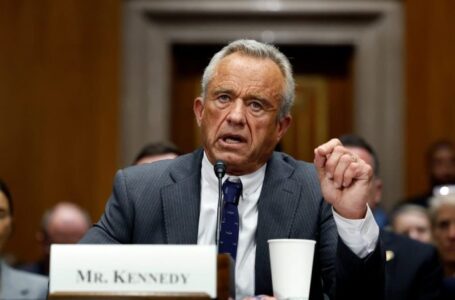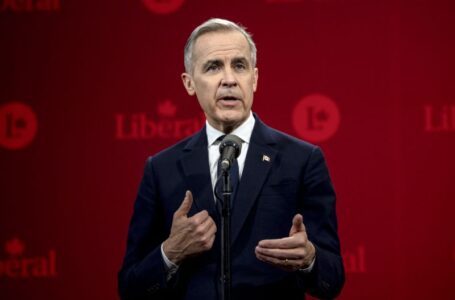Iran, China and Russia launch annual joint naval drills as Trump upends Western alliances
Surprises do happen in early primaries. How much have they mattered?


Barring a major surprise, Donald Trump should be well on his way to clinching his third consecutive Republican presidential nomination on Monday night, when the votes from the Iowa caucuses roll in.
Trump holds a historic lead for a non-incumbent and appears primed to win by more than any non-incumbent since Iowa moved to the front of the nominating-contest line in the 1970s. Bob Dole’s 13-point win in 1988 is the largest ever, and Trump has led by double that in every high-quality independent poll. The final edition of the venerable Iowa Poll this weekend showed him with a smaller lead than other recent polls have shown, but he was still up by 28. He leads by more than that in virtually every state except New Hampshire.
That said, Iowa voters are confronting unusually frigid conditions, and primary polls can have a way of surprising us — not so much that Trump’s win would seem to be in any real jeopardy, but in a way that the results could still matter and cause some reassessments.
Trump himself has a little experience with underperforming in Iowa. Back in 2016, he led in virtually every high-quality late poll, some by as much as double digits, but ended up falling to Sen. Ted Cruz (R-Tex.) by four points. Trump’s team has cited the fact that the novice candidate’s campaign lacked much of a ground game in the first political contest he ever featured in.
The 2012 Iowa polls paved the way for somewhat less of a shock, but still a surprise. Rick Santorum hadn’t led in any late poll, yet he pulled off the narrowest of wins.
Some big contests have featured more shocking results:
Leading that list is the Michigan Democratic primary in 2016, where Hillary Clinton led by more than 20 points in polling averages — models showed her with a 99 percent chance of winning — before losing to Bernie Sanders.Clinton’s 48-point landslide in South Carolina that year was about 20 points more than the polls suggested it would be.Now-President Biden’s game-changing 28-point win in the 2020 South Carolina Democratic primary was bigger than any late poll gave him — and some late surveys had indicated Sanders might even have had a shot.In the 2008 Nevada GOP caucuses, polls undershot Mitt Romney’s eventual win by about 30 points.
And some surprising contests have involved Trump:
Cruz’s 17-point win in the Texas presidential primary in 2016 was bigger than any late poll had shown.Trump barely won Virginia in 2016, after every late poll showed him ahead by double digits.Cruz beat Trump in Oklahoma in 2016, despite every late poll showing Trump winning.
As The Washington Post’s Philip Bump noted after that Michigan result in 2016, primary polls are less predictive than general election polls, where the country’s polarization means that things are more predictable.
The final margins in the last few nominating contests to that point differed from the polls by an average of between six and eight points. And since then, they’ve missed the mark even more — by an average margin of 10 points in the 2016 and 2020 primaries when you look at polls from the final three weeks of a campaign, according to FiveThirtyEight’s Nathaniel Rakich.
One thing you may have noticed is that many of the above examples involve Trump underperforming the primary polls — though that wasn’t true across the board (most states’ polls were relatively on point).
One way to look at that is that there is some precedent for his voters failing to turn out. That’s at least something of a concern in Iowa, where Trump has an even bigger advantage among potential first-time caucus-goers than overall; will those voters show up with wind chills in the minus-20-degree range when they never have before?
2024 presidential election
End of carousel
Another is that his campaign just wasn’t as robust as it is now, nor were his supporters as devoted as they’ve become over the ensuing eight years.
Still another is this: Most of these surprising results were aberrations that did nothing to truly reshape the race. Trump went on to win in 2016 despite underperforming in Iowa, Texas, Virginia and Oklahoma. (The latter three states all voted on Super Tuesday, in what was otherwise a resounding day for Trump.) Clinton won the nomination in 2016 despite Michigan. Romney was already well on his way to victory when Nevada gave him a huge boost.
About the only contest that truly shifted things was South Carolina’s in 2020. And even then, it was merely about the guy who had initially looked like the overall favorite, Biden, finally asserting himself.
Trump’s opponents would need more than a surprise or two; they would need to change the fundamentals in a way we’ve rarely if ever seen. Overperforming early on could help, but it’s just a necessary first step.











